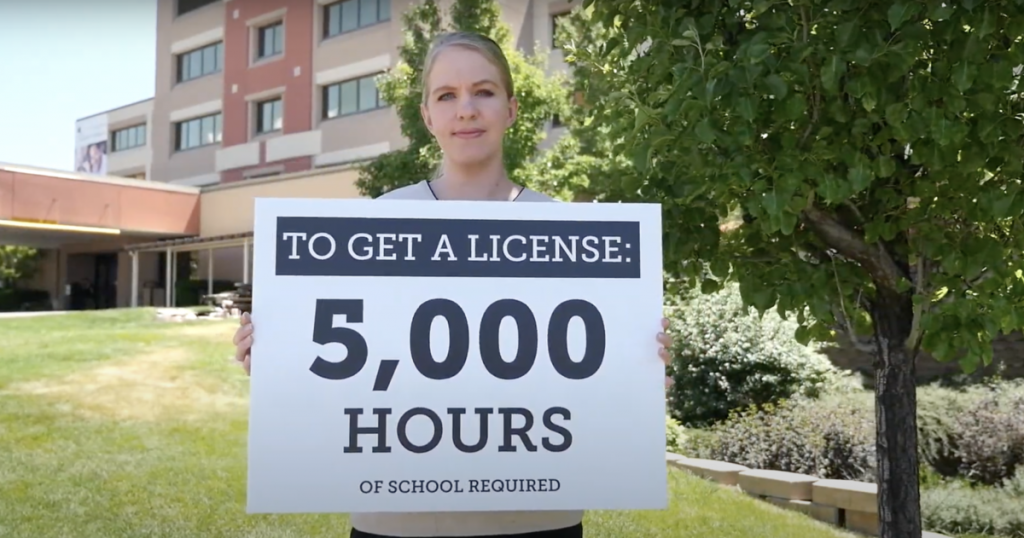Libertas Institute has long been a leader in reforming occupational licensure—state laws that require someone to obtain a government permission slip prior to working in their chosen profession. As advocates of a free market we are concerned with the government imposing these restrictions as a prerequisite of legal work.
A century ago, the U.S. Supreme Court noted that “the right to work for a living … is of the essence of that personal freedom and opportunity which it was the purpose of the Fourteenth Amendment to secure.” Utah law should protect this freedom and opportunity.
Hence we’ve advanced a variety of bills over the years to successfully limit this government power. Typically these reforms were industry-specific, focusing on a particular license and its regulations. In 2020, we championed a bill to limit the ability of the government to revoke a person’s professional license for criminal conduct—for any profession.
In the past, regulators had broad discretion to ban a person from working in their chosen field because of a criminal record—even if a past crime had nothing at all to do with the work, such as a would-be barber being prohibited from his profession because he once was convicted of forging a check.
With the new law in place, regulators can only only restrict someone’s ability to work if the criminal conviction “bears a substantial relationship to the [person’s] ability to safely or competently practice the profession.” Individuals have the right to work and should not be restricted in their profession without substantial danger to the public justifying the restriction.





